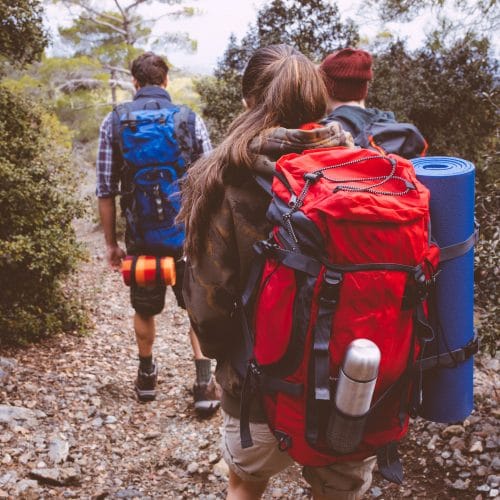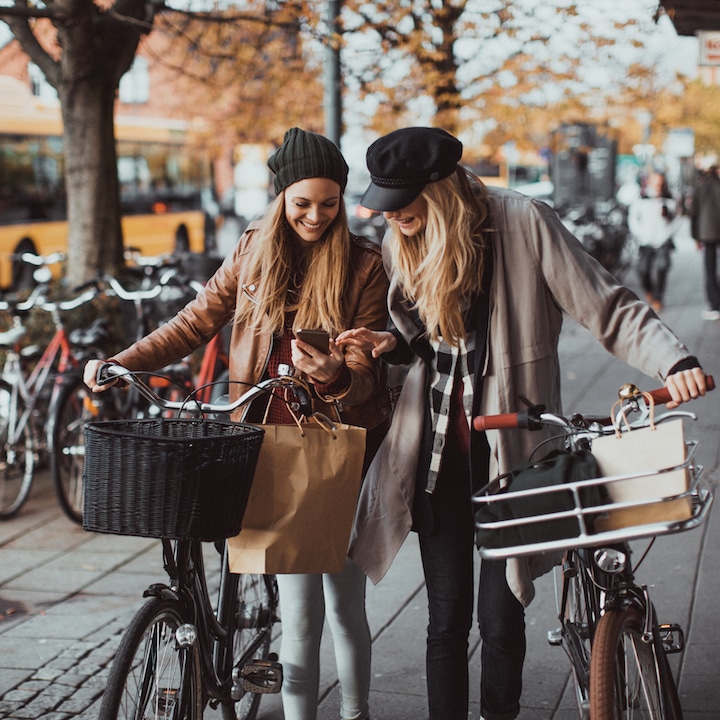Trying to travel sustainably is hard work, but here are some quick and easy ways to reduce the impact you’re making.
Travelling the world, meeting people from different cultures and experiencing new places is a passion for all of us. With so many countries easily accessible from Hong Kong, it’s no surprise we spend time counting down to our next trip! But recently, the world has woken up to the impact that our wanderlust can have, both on the environment and on our destinations of choice.
From eco hotels to ethical wildlife trips, there are countless ways to be more mindful of the impact that your travels have on the environment. But that’s just one tiny part of what sustainable travel actually is, so we’ve lined up some handy suggestions for how to make your holiday budget have as much of a positive impact as possible, whatever kind of trip you’re planning.
Read more: What I’ve Learnt From Volunteering At A Cambodian Orphanage
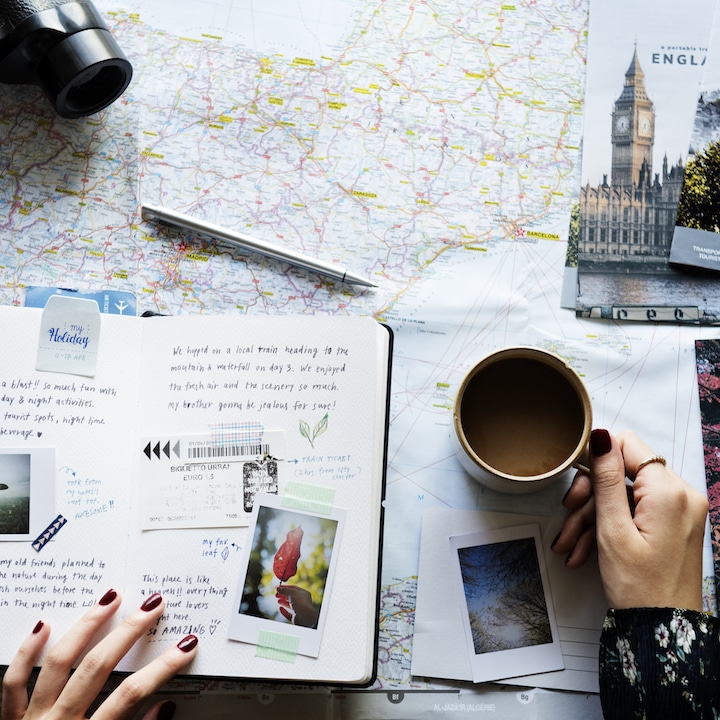
What is sustainable travel?
Sustainable travel is defined by the World Tourism Organisation as “tourism that takes full account of its current and future economic, social and environmental impacts, addressing the needs of visitors, the industry, the environment and host communities”.
Simply put, sustainable tourism works to preserve a country’s culture and environment whilst allowing for economic growth. By taking into account the impact that the tourism industry has on the culture, economy and environment, tourism can be a huge force for good, particularly for developing nations. But as the below stats show, there’s still a long way to go.
Did you know?
- Worldwide, 1 in 10 jobs are provided by the tourism industry
- According to the World Travel Organisation, travel is the biggest export income in almost half of the world’s least developed nations
- In those developing countries, on average only 5c out of every $1 USD spent on tourism stayed in the country in which is was spent
- Women are twice as likely to be employed in the tourism industry in developing countries than men, but earn less
(Sources: www.un.org/sustainabledevelopment and www2.unwto.org)
The question “how do I travel responsibly?” can feel like a tricky topic to handle, and the idea of whether travel can ever be done sustainably is very much a subject of debate. So if you’re feeling overwhelmed by where to start with making your travel plans better for the planet, remember that even making small changes to the way that you travel and by being mindful of sustainable practices when planning your trip, travelling and while on vacation, you can ensure your tourism (and how you spend your hard earned holiday fund!) is having a positive impact on both people and our planet.
Little steps you can take to travel more sustainably
The choices you make, the conversations you have and, ultimately, where you invest your money are all ways in which you vote for what you want and what you stand for – Tania Shroff, Travel Editor.
Tips for planning your trip:
City break
Research and book local, independent hotels where you can. Not only will doing this contribute more money directly to the local economy, you’ll also have a more authentic experience and benefit from your hosts’ knowledge of the area’s history, culinary culture, hidden spots and more. If you’ve stayed at a local hotel or homestay and had a great experience, be sure to review it and recommend it to people planning on travelling to the destination in the future – word of mouth is a hugely powerful tool for independent businesses.
Read More: Your Japan Travel Itinerary: Where To Stay, Eat & Explore In Tokyo, Kyoto & Osaka
Adventure trip
If you’re planning a trip that involves getting off the beaten track to explore local nature spots or see animals in their natural habitat, spend time researching ethical wildlife tour companies and reading reviews from fellow travellers about their experiences. Don’t be afraid to ask tour operators lots of questions, and avoid tours that give you the chance to ride wild animals, feed animals while they are under sedation, or that offer “animal selfie” experiences. Read up on information provided by official tourist boards about reputable tour companies, and look out for any red flags about the impact your visit could have on the natural habitat. If in doubt about the welfare practices of a wildlife tour company, it is best to steer clear.
Read more: How To Choose The Right Private Game Reserve Safari
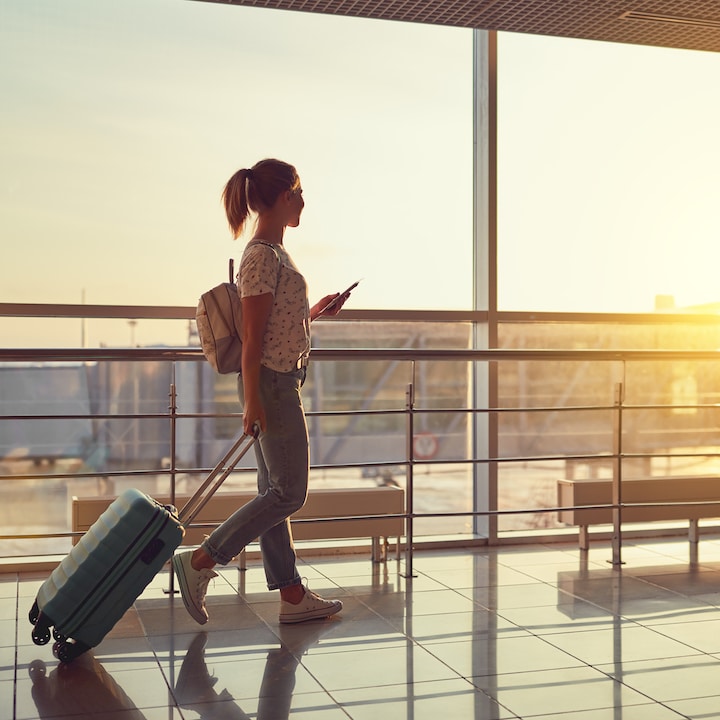
Tips for packing:
Pack light: Less luggage means a reduction in carbon emissions released into the atmosphere by your plane. Whilst it might not compensate for the flight itself, it can help!
Say no to plastic bottles: Remember to bring your reusable water bottle with you to the airport, as most allow you to take them through security, and most bigger airports (like Hong Kong) have safe drinking water stations for you to fill up.
Minimise single-use plastic altogether: Ditch the single use plastic miniatures by switching to solid shampoo and conditioner, solid soap and toothpaste tablets. These items can be taken through in your hand luggage without being declared as liquids, and their formulas often contain less environmentally harmful toxins than their plastic bottled counterparts.
Think of ingredients: You may be unwittingly packing an SPF that harms the environment. Read more about the damaging effect of traditional SPF formulas, and shop eco-friendly sunscreens that you can buy in Hong Kong here.
Read more: Living Plastic And Waste-Free In Hong Kong: Where To Buy All Of Your Essentials
While on the road:
City break
Use public transport or explore on foot or by bike when you can. Not only will you reduce your impact on the environment, chances are you’ll happen upon areas in the city you would have missed if you were whizzing past in a taxi!
Adventure trip
Even though it’s tempting to save time and plane hop around to get the most out of your vacation days, you can massively reduce your carbon emissions by taking trains in many destinations. In countries like Mainland China, Vietnam and Thailand, intercity trains run overnight, so bedding down on one gives you the added benefit of reducing time lost, whilst also saving on hotel fees. If you’re travelling around Japan or Taiwan and lots of Europe, the super speedy and comfortable high speed trains will often get you to your destination quicker door to door than flying, all the while helping you to reduce your carbon emissions.
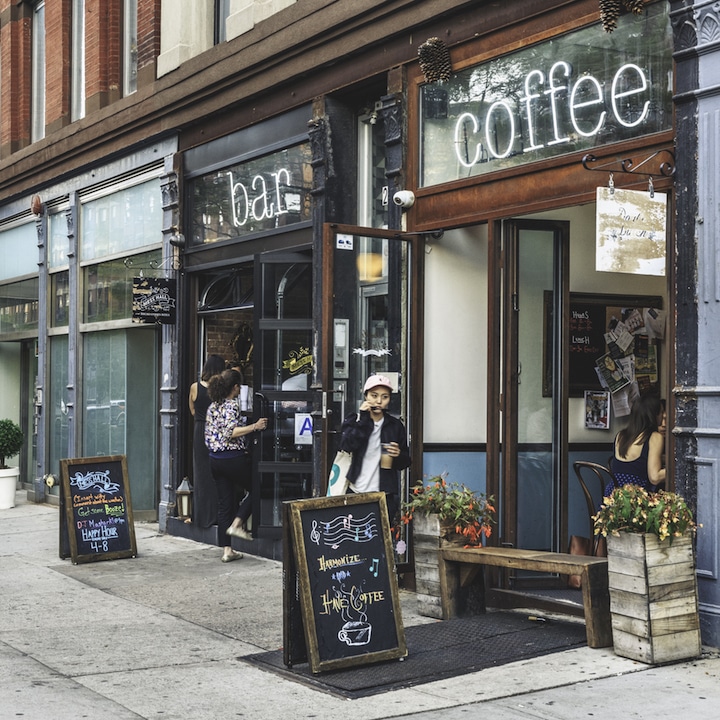
On vacation:
City break
While you’re away, eat at local restaurants and vendors and seek out non-chain coffee shops and cafes to keep as much of your holiday $$ in the pockets of local business owners. Remember to pack your reusable coffee cup and take a tote bag for any souvenirs you buy. Make a conscious effort to buy souvenirs from local companies and shops to help support makers, artisans and businesses. Find out more about the area by investing in a walking or food tour given by a local guide – you’ll be sure to find spots away from the beaten track this way too!
At the beach
Take your reusable metal straw away with you and be sure to ask for no plastic cups when you’re ordering your beachside cocktails. If you’re keen to get active while you’re away, ask at your hotel if there are any beach cleanups you can get involved in while you’re on holiday. Don’t be tempted to take shells, stones or other natural items from the beach – the old adage “leave only footprints” is the best way to reduce your impact at your destination of choice.
Adventure trip
If you’re on a wildlife trip, observe animals from a safe distance, ensuring not to disturb them and to be respectful of their habitats. Avoid making loud noises, getting too close to animals, touching them or trying to take selfies with them. If you buy souvenirs while on a wildlife trip, seek out local tradespeople and avoid animal products at all costs.
Read more: Sustainable Style: Eco And Ethical Leather Alternatives
A note on water: Single-use plastic water bottles are one of the biggest contributors to plastic waste (it’s estimated we throw away over 5.2 million a day in Hong Kong alone), but in many countries, it may feel like these are the only option to guarantee clean, safe drinking water. Check with hotels, cafes and restaurants you’re at to see if they have safe filtered water that you can fill your reusable bottle with. If you have no option but to buy bottled water while you’re away, consider looking into water filters or water purification tablets. Of course, prioritise clean and safe drinking water at all times.
Sometimes it can feel like everything we are doing as humans is wrong…but the fact we are having these conversations and trying to find ways to reduce our impact on the planet is a good step to making everything a little better.
Read more: How Hard Is It To Be Vegan In Hong Kong?
All images courtesy of Getty.





 Eat & Drink
Eat & Drink



 Travel
Travel
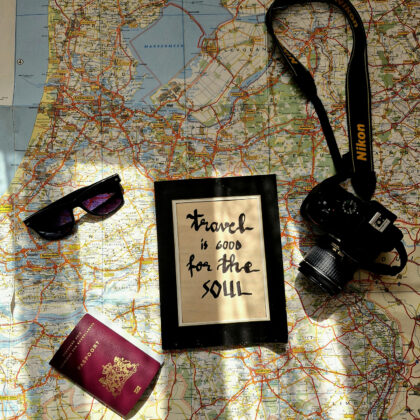
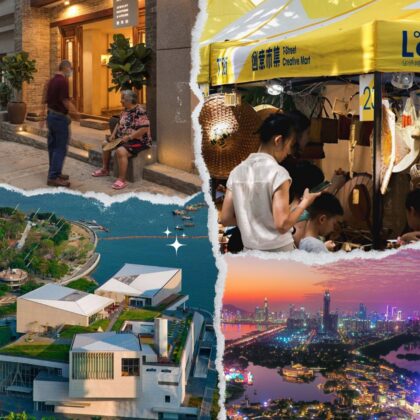

 Style
Style



 Beauty
Beauty


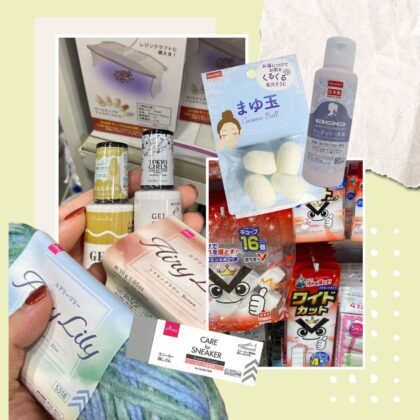
 Health & Wellness
Health & Wellness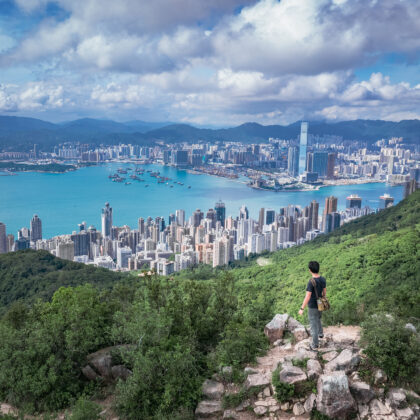
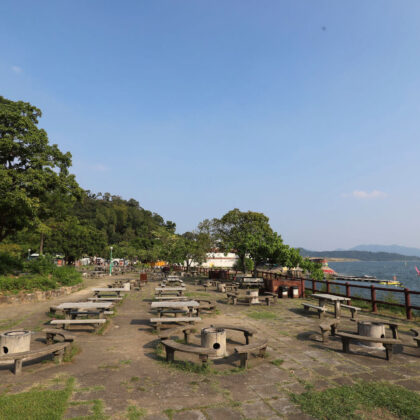


 Home & Decor
Home & Decor


 Lifestyle
Lifestyle
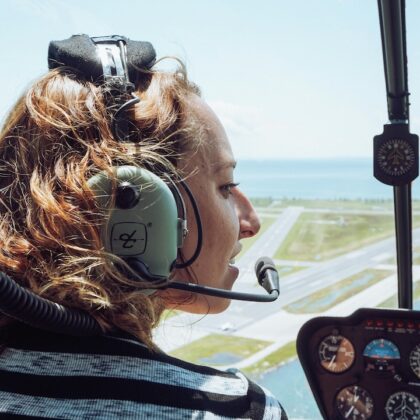

 Weddings
Weddings



